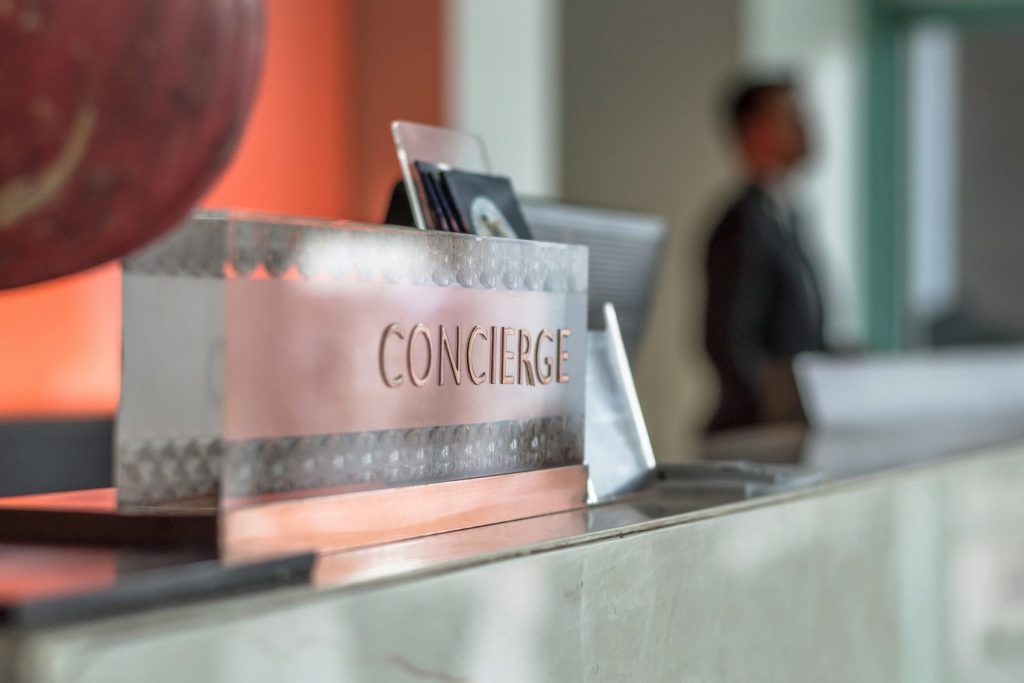Skift Take
Hotel leaders can expect to juggle new roles as travel returns — namely, taking a more community-inclusive approach to management and incorporating lifestyle guest experiences on site.
What the hotel recovery feels like at the level of the practitioner — past the macro view and looking at the actual practice of running the show post-pandemic as travelers return — was the crux of the conversation among three of the hospitality world’s experienced luxury hotel managers from New York to the UK and Rwanda, moderated by Skift On Experience columnist Colin Nagy at the Skift Hospitality & Marketing Summit on Wednesday.
Thomas Carreras, general manager at Four Seasons Hotel New York Downtown, said that the learning started with how to greet guests again with safety as a primary concern, while making sure they felt little had changed in terms of value as they walked in. “The energy level is great, everyone is enjoying re-welcoming guests.”
Olivia Richli, general manager at Heckfield Place luxury country-house hotel in rural Hampshire, less than 50 miles west of London, said that nature had become a priority in travelers’ experiences which put Heckfield Place in a perfect place to receive domestic travellers eager to escape the long UK lockdown connect with its spacious outdoors as well as learn from its on site garden produce.
“The demand that we’ve seen from people who can’t travel, the Brits who usually travel to the U.S. or on safari or the Maldives and the Caribbean are desperate for holidays, so we seem to have fit in very nicely.”

Lydia Nzayo, general manager at Singita, a collection of luxury safari lodges across four countries in southern Africa including Rwanda, agreed that welcoming guests now took a different approach that’s focused on safety while helping them rest and relax, which is what they really wanted since the lodge reopened in July 2020.
“To rest and to relax is what the guests really wanted so we worked around those themes of nature reconnecting and wellness. We’ve refined our experience so that the guest could find their space. That’s been our focus for us as a brand.”
Running a hotel post-pandemic and doing it successfully long term? It means looking beyond beds and walls — it will require nurturing staff, balancing taking a warmer and deeper approach in welcoming guests while minding their concern for safety, all while pulling in the location’s cultural essence and communities into the fold.
Goodbye Rigidity, Hello Finesse
Post pandemic, a great general manager isn’t just a conductor, Nagy said, but also someone who must oversee and inspire staff.
Carreras agreed that hanging on to his Four Seasons New York staff was a priority and that it took staying in contact with them via weekly video messages, as well as nurturing to ensure they felt safe and engaged while learning a new hospitality approach.
“When they all came back, we wanted them to have a sense of how the world had evolved — we’re not here to do transaction anymore,” Carreras said. “How do we create and connect memories? How does each interaction become so memorable in a way that guests say, I don’t remember how I got to my room but this person was just amazing.”
Carreras said that the hotel’s responsibility now was to be more purposeful and thoughtful beyond transactions. “Think, what is it that you need to know about that guest? What does that guest want to know about us, and how do you understand his needs in this new world so you can adjust the way you address him?”
No more drill responses to show the hotel’s offerings, but understanding what each visit is really about. Approaching guests in that meaningful way leads to better understanding and responses, Carreras said.
A Hotel is Not a Place, It’s Part of a Community
Panelists agreed that a hotel is no longer considered as just sitting in a place — it’s part of a community and that community and culture must be reflected within the hotel’s culture and offerings.
Nzayo said that conservation being at the heart of Singita brand, the hotel has always placed a lot of emphasis on learning new things, and guests have emphasized knowledge as an interest. This includes teaching guests about Singita and Rwanda, as well as involving communities — having local artisans who make tailor made clothes for guests, or having communities at the lodge carving gorilla sticks for guests.
“Most of our staff are from local communities and we try to engage with guests, explain to them the impact that the guest has on the community,” Nzayo said. “When guests know they are part of it, they see the bigger picture, that it’s a holiday with a purpose which I think is something many people want to do now.”
Caring about guests and community long term also means not engaging in price gauging, as some hotels in the U.S. have, Nagy said.
Richli said rates stay the same at Heckfield Place and that guests appreciate that. Occupancy levels might get reduced to make sure the level of service is there, but the rates aren’t affected.
“We’re absolutely full for the rest of the summer,” Richli said. “I’ve learned that gauging will come back to bite you, you’re not being honorable. We love having loyal customers and guests — our repeat business is huge after the third year, we’re up to 37 percent in a year when we were closed most of the time.”
Carreras agreed and added that the long run success is to build relationships with clients who see the value, and average daily rates should be in relation to value proposition.
It’s about Playfulness and Lifestyle
Carreras said that having a great component of luxury lifestyle and showing guests the art of living in a location was crucial now.
“People are looking for a very different type of travel. They want to learn, they want to be purposeful, they want to be in sync with the city. How can we engage customers in engaging the art of living in the city — fashion, art, wellness and culinary. How to bring it in life in hotel so we are more than beds and tables with room service menus but we are really lifestyle.”
For the Four Seasons Downtown New York, this means collaborating with chefs or fashion designers, for instance, and bringing their creations into the hotel through pop ups, lobby displays or additions to the restaurant menu.
“Bringing craftsmanship of the city within the hotel and display that on multiple levels is something clients look forward to,” Carreras said.
Panelists agreed with Nagy’s final take from the roundtable.
“Hotels need to be much more than hotels — they need to be hubs, they need to be curators, they need to do the things that they need to do well – which is the nurturing and the attention to detail, but also there’s new roles.”
The Daily Newsletter
Our daily coverage of the global travel industry. Written by editors and analysts from across Skift’s brands.
Have a confidential tip for Skift? Get in touch
Tags: hospitality, skift live
Photo credit: A front desk, the nerve center of a hotel. What will change post-Covid for hotels. Chinnapong / Getty Images
